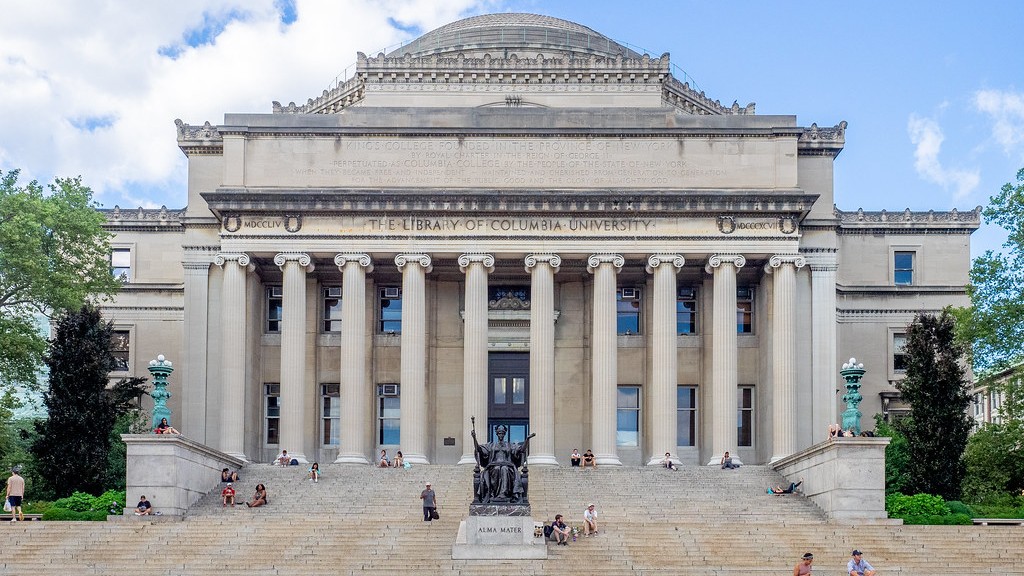University Removes Name Of Founder Who Owned Slaves
The University of Cincinnati removed the name of its founder who owned slaves from campus spaces, in a move to make it more welcoming to all.

The University of Cincinnati has decided to change the name of 4 campus spaces. This isn’t in honor of some new innovators, or modern donors. This is yet another recent incident of historical founders losing their notability because of past indiscretions.
In recent years a push to remove statues and rename schools and other buildings has gained momentum as anyone connected to slavery or racism is seen as an enemy of American freedoms by some. It is true that many of the nation’s founders oppressed others and infringed on their constitutional rights. Opinions on how this is taught and remedied are affecting students today, and the University of Cincinnati is the latest to make changes to erase a painful past.
The school’s founder, Charles McMicken was a complicated man. Unlike some obvious offenders, his past is rife with conflicting actions. He was born to Scottish immigrants and grew up to become a sales clerk, then a trade merchant. Over time his wealth grew and he became a charitable landowner. He did own slaves, a legal and normalized act at the time, but what’s most interesting to some University of Cincinnati historians is that he also donated some of his own land to freed slaves.
His charitable endeavors were extensive. He donated $10,000 to College Hill’s Farmer College, that would be well over $350,000 today, and left $1 million in land ownership to the city of Cincinnati upon his death. This money was to be used to create a college. It was what funded the birth of the University of Cincinnati.
Given his history, school officials created a 44-page report to determine whether or not McMicken’s name should be stricken from the entire University of Cincinnati campus. In 2019 his name was removed from the College of Arts and Sciences in order to be more welcoming to black students who are descendants of slaves. The school board voted on the subject unanimously in an effort to represent all students.
Some have claimed that the University of Cincinnati’s founder has been celebrated too much, that his image was too “tidy.” They believe anyone connected to slavery or any racial injustice should be punished — even posthumously when they cannot stand trial or offer any defense. The ethical concerns surrounding this issue is that the entire scope of the situation is lost on students who have been taught that slave owners were evil. While most people agree that slavery is wrong, it is also known that people are often held to the societal standards of their time. Like many were expected to stay home, avoid loving contact with family member and mask up for 2 years to protect against a virus that was not detrimental to the general public, during the times of slavery, ownership of African slaves was a normal aspect of society that took decades of understanding to finally change.

What’s more, although Charles McMicken did own other human beings, which is wrong, he also donated money to obtain land in Libya to help African-Americans return to their homeland as free people to avoid the oppression of their time. This detail leads some to question if he fully supported slavery, or may have had a change of conscience throughout his lifetime. It is also rumored that he had a son with one of his slaves and that may have changed his view on the legal slave trade. While the University of Cincinnati’s intentions will never be fully known, the fact is that McMicken’s past is full of conflicting actions that better display the people of the time.
Students who wish to learn more about why slavery existed for so long, and how it is still legal in some areas of the world today, can learn from different historical figures like the University of Cincinnati’s founder. Although his name has been removed, his legacy created a significant learning space in the city and that still stands. Whether everyone agrees on the removal or not, it is a common trend that has affected schools across the country and so providing a proper learning space for all students is the main focus, while historical preservation is not just found in names. Books, records, and other resources are still available, including the founder’s history on the University of Cincinnati’s website.



